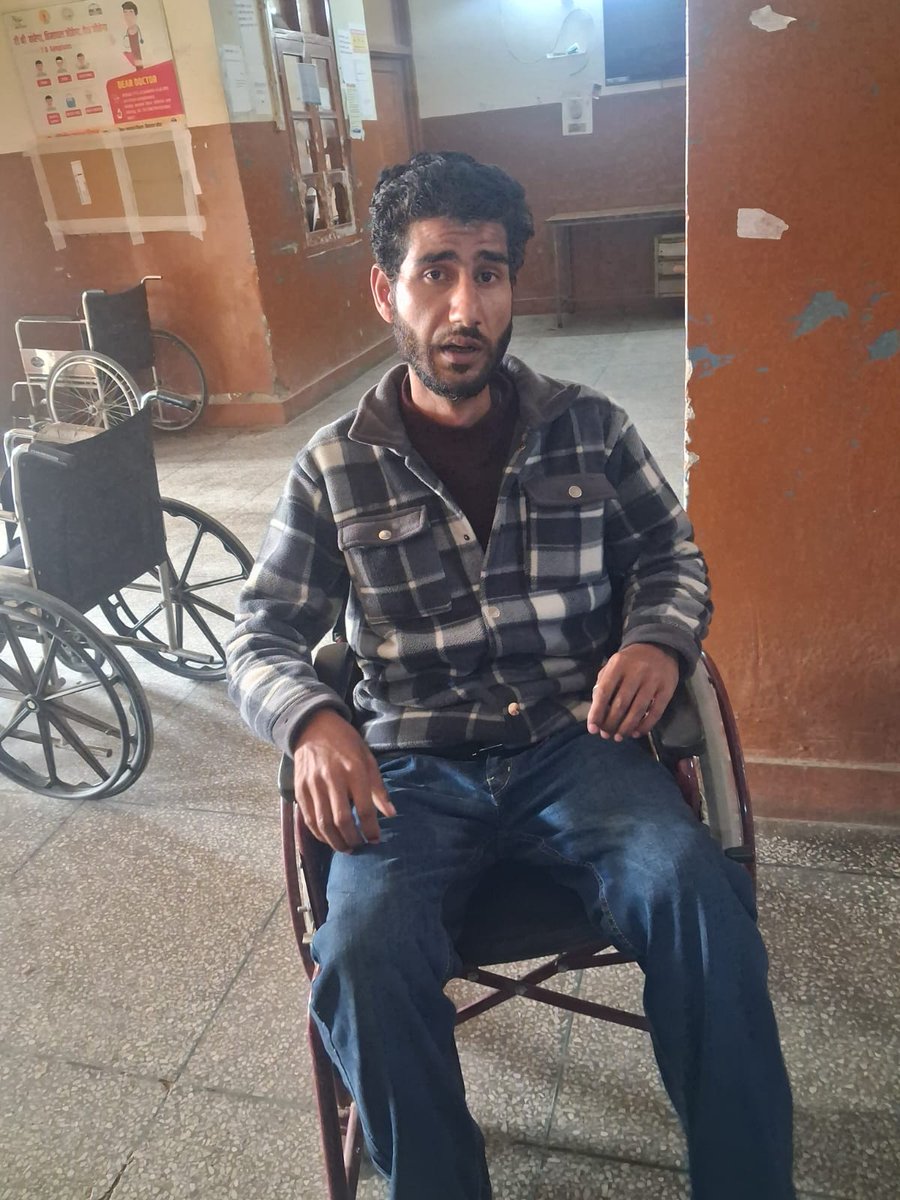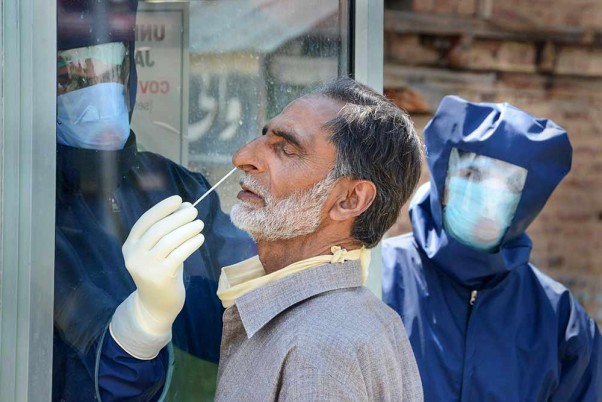A Landmark Move in Healthcare Reform
By: Javid Amin | 27 October 2025
In what could mark a turning point for Jammu and Kashmir’s public health system, National Conference MLA Abdul Majeed Bhat (Larmi) from Anantnag West is set to table the Government Doctors (Regulation of Private Practice) Bill, 2025 in the Legislative Assembly.
The proposed legislation, if passed, would prohibit all government-employed doctors from engaging in private practice — whether directly, indirectly, or through affiliations with private hospitals, clinics, or diagnostic centers.
The move comes amid growing public frustration over absenteeism in government hospitals, long patient queues, and concerns that doctors prioritize private patients over their official duties.
“This bill isn’t against doctors—it’s for the people,” MLA Larmi told reporters. “We need to restore the sanctity of public service in medicine.”
What the Bill Proposes
The Government Doctors (Regulation of Private Practice) Bill, 2025 introduces sweeping changes designed to improve accountability and ensure full-time dedication from medical professionals on the public payroll.
Key Provisions:
-
Total Ban on Private Practice
-
Government doctors cannot engage in private medical practice in any form.
-
Indirect associations—such as ownership stakes, referrals, or advisory roles—will also be prohibited.
-
-
Strict Penalties for Violations
-
Disciplinary measures may include suspension, termination, or withholding of salary increments.
-
Financial penalties may apply depending on the severity of the violation.
-
-
Penalties for Private Institutions
-
Any private hospital, diagnostic center, or clinic found employing or collaborating with government doctors in violation of the Act will face fines ranging from ₹5 lakh to ₹25 lakh.
-
-
Introduction of Non-Practising Allowance (NPA)
-
To ensure fairness, the bill proposes a Non-Practising Allowance (NPA) or similar financial incentive, compensating doctors for income loss due to the ban.
-
-
Monitoring and Enforcement Mechanism
-
A State Medical Oversight Committee would be established to ensure compliance, review complaints, and recommend disciplinary actions.
-
Why This Matters
The issue of dual practice has long plagued J&K’s healthcare system. Many patients, especially in rural and underserved areas, complain that government doctors often remain unavailable during duty hours, directing patients instead to their private clinics after hours.
Potential Benefits of the Bill:
-
Improved Patient Care: Full-time presence of doctors in government hospitals.
-
Reduced Absenteeism: Eliminating the incentive for dual practice could improve accountability.
-
Equitable Access: Poor patients who rely on public health services will benefit from better availability of care.
-
Public Trust Restored: A clear separation between public duty and private profit can rebuild faith in the system.
“The health of the people cannot depend on the convenience of a few,” said Dr. Rouf Ahmad, a Srinagar-based public health expert. “This bill could be a moral reset for the medical community.”
The Political and Professional Divide
The proposed legislation is expected to spark heated debate in the Assembly and across the medical fraternity.
Supporters Say:
-
It’s a progressive reform aligning J&K’s healthcare ethics with global standards.
-
The inclusion of NPA compensation ensures fairness for doctors.
-
It could inspire similar measures in other states facing healthcare inefficiencies.
Critics Argue:
-
The move may worsen doctor shortages, especially in specialist care.
-
Some suggest a phased or selective ban, exempting specialists in high-demand areas like oncology or cardiology.
-
Others fear brain drain, with doctors opting for private sector jobs or leaving the region.
The Doctors’ Association Kashmir (DAK) has already voiced mixed reactions, acknowledging the intent behind the bill but urging the government to ensure that “the reform doesn’t demoralize hardworking professionals.”
Context: The Dual Practice Dilemma in J&K
Historically, private practice by government doctors has been a contentious issue in Jammu & Kashmir.
-
Several attempts to restrict dual practice—dating back to the 1980s—were rolled back due to political pressure and lack of enforcement.
-
The issue resurfaced during the COVID-19 pandemic, when many public hospitals faced doctor shortages, despite hundreds being employed by the government.
-
The J&K High Court has, in past rulings, urged the administration to review the legality of dual practice and its ethical implications.
Health experts argue that the conflict of interest inherent in dual practice not only impacts efficiency but also undermines the credibility of public institutions.
“When patients lose faith in public hospitals, healthcare becomes a commodity,” said Zareefa Bano, a social health activist from Baramulla.
Learning from Other States
States like Tamil Nadu, Odisha, and Himachal Pradesh have already implemented strict restrictions on private practice by government doctors, offering Non-Practising Allowances as compensation.
-
Tamil Nadu’s model pays an NPA of up to 25% of basic salary, significantly improving doctor retention and hospital efficiency.
-
Odisha’s framework links incentives to performance metrics, ensuring accountability.
Analysts suggest that adopting a similar structure in J&K could help balance reform with retention, preventing potential pushback from the medical community.
Public Sentiment and Expectations
Public response across Jammu, Kashmir, and Ladakh has been largely positive. Civil society groups, patient rights advocates, and social media users have welcomed the bill, seeing it as a long-overdue correction in public healthcare ethics.
However, the public also expects transparency and fairness in implementation — ensuring that the policy does not lead to harassment, arbitrary suspensions, or administrative misuse.
“We’re not against doctors earning well,” said Imtiyaz Shah, a teacher from Pulwama. “We just want them to be present in hospitals when our families need them.”
The Road Ahead
The bill’s introduction will test not only the political will of the National Conference but also the collective conscience of J&K’s legislative and medical establishment.
If passed, it could serve as a model for ethical reform in public service, prioritizing people’s health over private gain.
But if diluted, it risks becoming yet another symbolic gesture in a system yearning for accountability.
“Reform in healthcare isn’t about punishment—it’s about purpose,” MLA Larmi concluded. “This bill is a reminder that medicine is a calling, not a convenience.”



